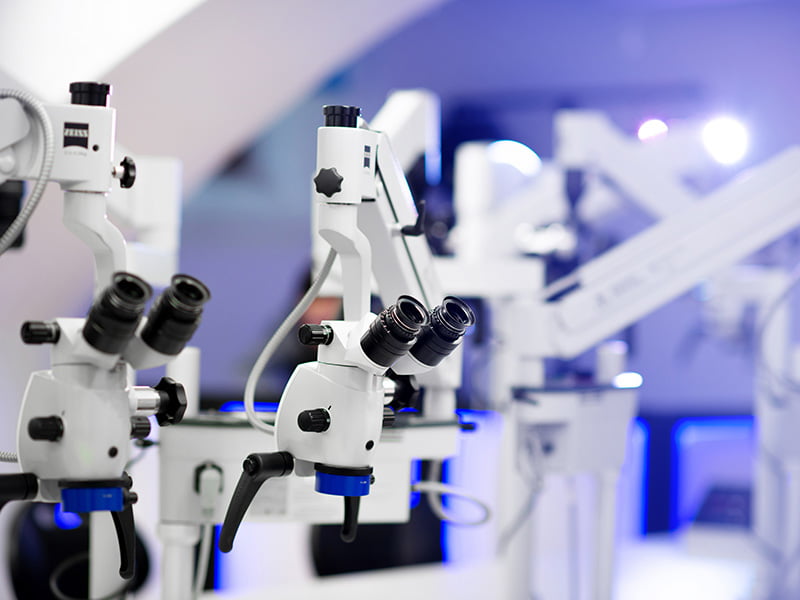Australia risks losing its competitive advantage in clinical trials and seeing companies move operations elsewhere if government goes ahead with its planned changes to the research and development tax incentive, according to ARCS Australia chief executive Shanny Dyer.
Australia has a good reputation for clinical trials, Dr Dyer said, and the country’s strong response to COVID-19 has positioned it well to look to entice more large companies to conduct trials here.
“While the rest of the world is really struggling with COVID, we’re actually doing really, really well, except for Victoria. If you’re a company looking to conduct clinical trials, if someone gets sick with COVID in the middle of a trial, that knocks them out,” Dr Dyer told InnovationAus.

“Being able to have a place where you’ve got some control over COVID makes us a great destination in this scenario to complete trials,” she said.
“We can jump on this opportunity when the rest of the world is rampantly infected with COVID, for us to put a stake in the ground about our ability to run clinical trials.”
ARCS Australia is a membership-based group focusing on the medtech and pharmaceutical sectors.
Much of Australia’s competitive advantage on clinical trials comes from the research and development tax incentive (RDTI), Dr Dyer said, but the government’s plan to make a series of changes to the scheme could significantly damage this.
The Coalition has been planning significant reforms to the RDTI for several years, with legislation now before Parliament making a series of changes amounting to a $1.8 billion cut to the scheme.
The changes include the introduction of a $4 million cap for companies with turnover under $20 million per year, and a new “intensity measure” to calculate the size of the offset for larger firms.
The RDTI is “vitally important” to companies looking to run clinical trials in Australia, Dr Dyer said, and the proposed changes would lead to many looking to other countries.
“You can do trials much cheaper in South Korea, China or India because staff costs are a lot less. The introduction of the RDTI meant an overseas company can set up an entity in Australia, conduct a trial through that entity and offset all the tax they otherwise would have paid. It became quite financially viable,” she said.
“It’s really important to keep a sensible system available for companies doing proper innovation in Australia, a policy that can define appropriately what R&D is.”
The government legislation does include an exemption from the $4 million cap for smaller firms on any expenditure from conducting clinical trials. But this isn’t enough, Dr Dyer said, and the more significant trials will be at risk.
“It’s going to have a negative effect because it’s a $4 million cap on the carve out. People just run where the money is. What it means is they’re going to get nothing from the RDTI for phase two or phase three trials. You’re going to cut out the bigger trials,” Dr Dyer said.
A number of submissions to the Senate Economics Legislation Committee’s inquiry into the planned cuts to the RDTI raised concerns with the impact of the changes on Australia’s ability to attract clinical trials.
Medicines Australia said the current incentive plays an important role in attracting these trials, which bring significant health and economic benefits with them.
The proposed changes would greatly reduce the incentive for global companies to conduct clinical trials in Australia, and the exemption for clinical trials from the $4 million cap should be expanded to all companies, rather than just those with turnover of less than $20 million.
“This bill discourages R&D activities coming to Australia. Australian patients will miss out on new potentially life-saving medicines of last resort, while the economy will miss out on foreign direct investment, developing expert knowledge and high-skilled jobs,” the Medicines Australia submission said.
“The proposal to tie the rates of the non-refundable R&D tax offset to the incremental intensity of R&D expenditure creates an unlevel playing field and will likely reduce the non-refundable R&D tax credit accruing for large companies bringing global clinical trials to Australia.
“As such, Australia’s attractiveness as a destination to conduct global clinical trials will be reduced at a time when the growth in clinical trials under the current R&D tax incentive has displayed both good additionality and has well targeted spillovers that maximise fostering collaboration.”
In another submission, AusBiotech also said that the proposed reforms to the RDTI would threaten Australia’s competitive advantage in clinical trials.
The organisation also said that the exemption for clinical trials in the legislation has created “significant confusion and concerns” and needs to be clarified.
“In theory, the clinical trials exemption will give Australia an opportunity to build on its hard-won momentum in clinical trials and continue its growth in commercialising medical research,” the AusBiotech submission said.
“In practice, the confusion about which expenditure related to clinical trials would be eligible for claim is completely unresolved, the composition of the $4 millon cap ought to be delayed until this can be resolved.”
The Senate committee has now due to report back on the legislation in mid-October, after the federal budget is set to be delivered.
Do you know more? Contact James Riley via Email.

